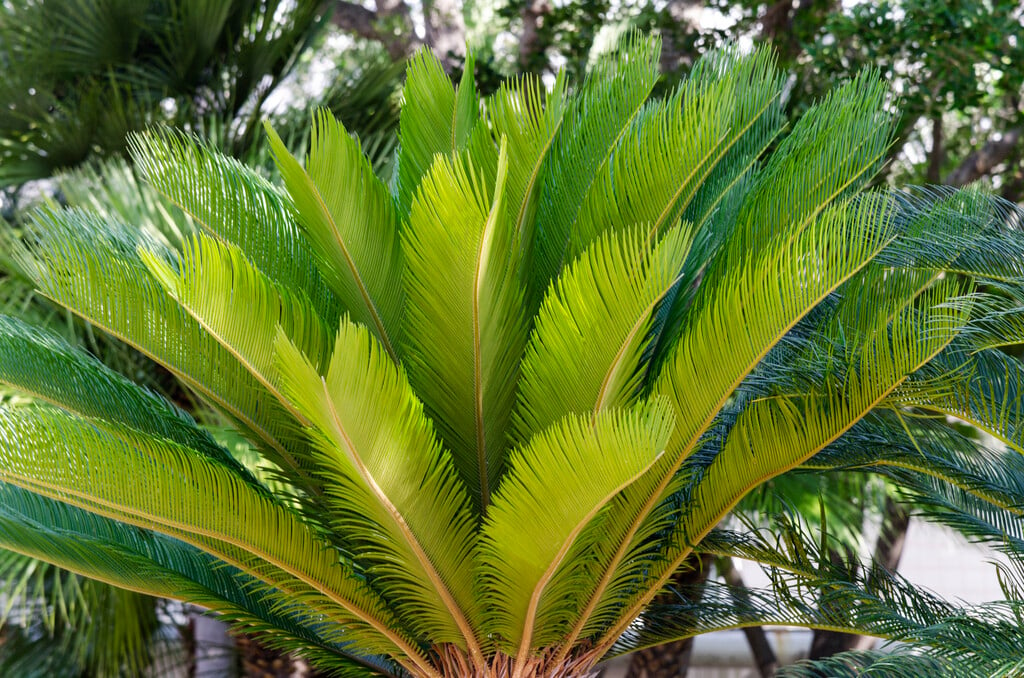Cycas revoluta
Japanese sago palm
A slow-growing, palm-like evergreen perennial to 2m, with arching pinnate leaves to 1.5m in length, and golden-brown, ovoid inflorescences which are rarely seen except on mature plants
Size
Ultimate height
1–1.5 metresTime to ultimate height
20–50 yearsUltimate spread
1–1.5 metresGrowing conditions
Moisture
Moist but well–drainedpH
Acid, NeutralColour & scent
| Stem | Flower | Foliage | Fruit | |
| Spring | Green | |||
|---|---|---|---|---|
| Summer | Brown Yellow | Green | ||
| Autumn | Green | |||
| Winter | Green |
Position
- Partial shade
Aspect
South–facing or East–facing
Exposure
Sheltered Hardiness
H3Botanical details
- Family
- Cycadaceae
- Native to GB / Ireland
- No
- Foliage
- Evergreen
- Habit
- Tufted
- Potentially harmful
- Harmful if eaten, skin irritant. Wear gloves and other protective equipment when handling TOXIC to pets (dogs, cats) - see the HTA guide to potentially harmful plants for further information and useful contact numbers
- Genus
Cycas are evergreen dioecious perennials with stout woody trunks bearing large, leathery, pinnate leaves in a terminal rosette; male inflorescences are large and cone-like, female ones consist of smaller, modified leaves
- Name status
Correct
- Plant range
- Far East
How to grow
Cultivation
Grow under glass in a peat-free, loam-based potting compost with additional leaf mould and grit; provide full light with shade from hot sun and moderate humidity. Water moderately in the growing season, sparingly at other times. Alternatively in frost free areas, grow in a moist but well-drained soil in bright light with some protection from full sun
Propagation
Propagate by seed or suckers
Suggested planting locations and garden types
- Architectural
- Patio and container plants
Pruning
No pruning required
Pests
Generally pest-free outdoors, but may be susceptible to glasshouse red spider mite under glass
Diseases
Generally disease-free
Love gardening
Sign up to receive regular gardening tips, inspiration, offers and more
View our Privacy Policy
Get involved
The Royal Horticultural Society is the UK’s leading gardening charity. We aim to enrich everyone’s life through plants, and make the UK a greener and more beautiful place.

